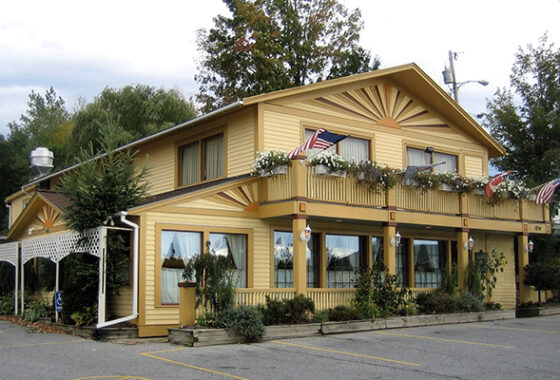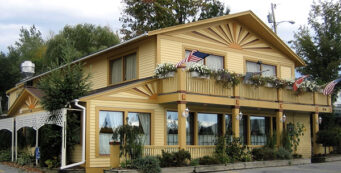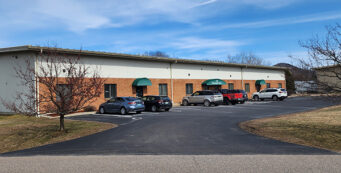It’s Time to Start Considering Vermont as an Entrepreneurial Hub– Here’s Why
With a track record to rival places 5 times its size, Vermont offers a unique combination of access and success.

When you think of Vermont you probably think of a place to vacation. You might know it’s home to the absolute beauty that is Lake Champlain, or even that it’s the birthplace of Ben & Jerry’s. But this small state punches above its weight in creating companies like Merrell, Green Mountain Coffee, and Dealer.com.
It’s a state with fewer people than Oklahoma City, yet it has a 40-year track record of creating billion-dollar exits. Burlington’s downtown has the shopping and restaurants of a major metro, all tucked into a city of 40,000.
This region cares more about output than being on a list. “What we’re not trying to do is position ourselves as the next Silicon Valley or some version of it. We’re leveraging our unique assets and enhancing an ecosystem that has tremendous capabilities,” said Nick Grimley, director of entrepreneurship and tech commercialization for the Vermont
Department of Economic Development.
And what you’ll learn as you keep scrolling is how people have been able to succeed because of the area, not in spite of it; that they’ll give you $10,000 to come there; and that its prior successes are making it easier for startups to grow here.
Vermont keeps creating great companies.
We’re already seeing the next wave of companies to come from Burlington. Even if you don’t spend as much time in airports as I do, chances are you’ve seen a circular Mamava pod in a terminal. These pods provide private lactation rooms in public spaces and were featured recently on The Today Show.
“I think the fact that we have designed a unique space that stands out as a sort of a billboard that says ‘pumping and breastfeeding happen here’ is our greatest impact. Lactation spaces are needed anywhere moms go or work, which of course is everywhere. We’ve placed units in airports, stadiums, factories, hospitals, schools, and private offices,” said Sascha Mayer, Mamava’s co-founder and CEO.
One of the most important things for any city or state’s startup ecosystem is reinvestment after billion-dollar exits. Trickle-down economics is a debatable strategy, but the trickle-down of founders reinvesting in second and third companies in an area is not. It’s highly important in keeping momentum.
When Dealer.com, a digital marketing company for auto dealers, sold for over a billion, co-founder Mike Lane took the lessons learned from his first success and created a marketing automation company called Fluency. It plays in a similar space, so they can leverage past contacts to grow quickly.
“The success of our last venture certainly gives us the street cred,” said Lane. “There’s a level of trust in what we are doing.”
To replicate this success here, your idea can come from anywhere. If you have a small idea, this is a great place to start. You can raise a million dollars creating ultra-small and affordable satellites, like Benchmark Space Systems. Or in less than three years, replicate Packetized Energy, which has won multiple national grants and million-dollar awards turning connected things in to virtual batteries. In other words, everything in your house adapts in real-time and shares power sources to conserve or boost energy as needed.
This speaks to a willingness in the area to get behind anything that demonstrates a potentially large future market.
Vermont is changing perceptions.
The state knows you don’t always think of it and entrepreneurship in the same sentence. And not everyone here is a massively successful startup founder on their second or third company. Growing the ecosystem starts with retaining top talent from the University of Vermont and attracting more.
“Creating an efficient education, co-working and co-living hub is the first step in changing the story of Vermont–students, entrepreneurs, business owners, and community members need to believe that the resources to succeed are here, and they don’t need to go elsewhere,” says Bob Zulkoski, chairman and managing partner of Vermont Innovation Commons, a massive entrepreneurial hub and campus overlooking Lake Champlain that Zulkoski says will be ready in 2020.
Why something can work in Vermont.
For starters, they will pay you to live here. A new program pays people $10,000 to move to Vermont and work remotely. Burlington is not the cheapest place because it’s in the Northeast but it’s all relative depending on where you’re coming from.
Duplicating this kind of success starts with tapping in to the existing ecosystem. You’ll have more governmental resources here than in most states. Founders of established startups like Mamava and Dealer.com are often willing to share knowledge over coffee. Use that.
Finally, you’ll get taken seriously here because of the other success stories that have come before it.
Burlington is a little bit Boston, it looks a lot like Seattle, and it feels a lot like Boulder. You’ll have to work a little harder for capital than in New York or Boston, but not as hard as in most small cities. Investors always look at an area’s track record first–and Vermont has a good one.









